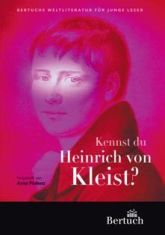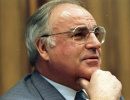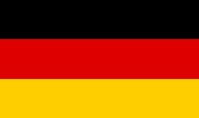Translation by Christoph Werner (Weimar, Thuringia) and Michael Leonard (Petaluma, California)
When Berlin became the capital of a reunified Germany, the former Federal Chancellor Helmut Kohl was one of the main initiators of this process. On the 20th of June 1991, 328 Members of the Federal Parliament (Bundestag) voted to make Berlin the seat of government of reunified Germany, 320 against. Strong supporters besides Kohl were the then Secretary of the Interior Wolfgang Schäuble, the then leader of the parliamentary Social Democratic Party of Germany Hans-Jochen Vogel, a clear majority of the Liberal members (FDP) and in great unanimity the members of the new, eastern states (Bundesländer). Against Berlin as the new German capital among others were the candidate for chancellor in 1990, Oskar Lafontaine, the former Secretary of Labor, Norbert Blüm, as well as the complete parliamentary group of the CSU, the Bavarian Christian Social Union. In view of such a small majority, the voice of the Chancellor had a decisive impact.
Kohl had two main reasons for his Berlin vote. First he wanted to visibly document and further the unification of the two parts of Germany, which had been partitioned for 40 years, and second as an historian by profession he was of the well-founded opinion that Berlin was by its very history the German capital.
In front of the Brandenburg Gate he announced the successful German reunification.
Even after he lost the chancellorship and left Parliament, he remained loyal to Berlin, keeping a residence in the old imperial and new federal capital. The new Chancellery building in a bend of the Spree river in Berlin was erected according to blue-prints approved by him. This is what Florian Russi wrote about Kohl*:
In 1989 the people of the German Democratic Republic (communist east Germany) rose in a peaceful and unbloody revolution and caused the disintegration of the socialist regime imposed upon them after the Second World War. Helmut Kohl, Federal Chancellor at that critical time, achieved the support of the former victorious powers USA, Soviet Union, United Kingdom and France through what can only be called a brilliant diplomatic effort. They agreed to the German reunification "in peace and freedom." What had been deemed as nearly impossible was realized within one year. Now, as the former Chancellor and father of the new German eastern policy (Ostpolitik), Willy Brandt, had put it, "will grow together what belongs together". At the same time reunified Germany became an integral part of the European Union.
*****
*Florian Russi: Worauf wir stolz sein können. Eine Recherche. Bertuch Verlag, Weimar, 2. Aufl. 2005.
Pictures:
above left: Bundesarchiv, B 145 Bild-F074398-0036 / Engelbert Reineke / CC-BY-SA (Ausschnitt)
Diese Datei ist unter der Creative Commons-Lizenz Namensnennung-Weitergabe unter gleichen Bedingungen 3.0 Deutschland lizenziert.
above right: Bundesarchiv, B 145 Bild-F082413-0020 / Schaack, Lothar / CC-BY-SA (Ausschnitt)
Diese Datei ist unter der Creative Commons-Lizenz Namensnennung-Weitergabe unter gleichen Bedingungen 3.0 Deutschland lizenziert.
below left: Bundesarchiv, Bild 183-1989-1222-034 / Oberst, Klaus / CC-BY-SA
Diese Datei ist unter der Creative Commons-Lizenz Namensnennung-Weitergabe unter gleichen Bedingungen 3.0 Deutschland lizenziert.






